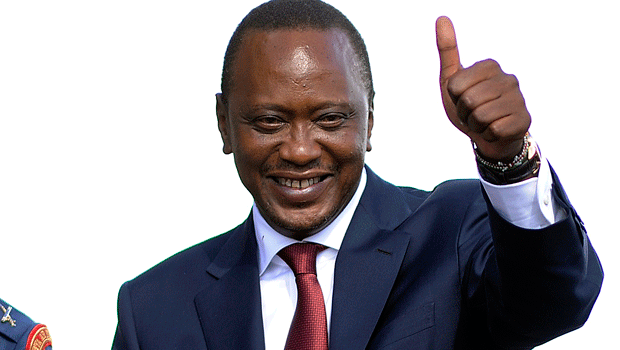Kenyans have recently been treated to melodrama and political chicanery of the highest order. First came in the ‘special parliamentary session’ where President Uhuru Kenyatta invoked section 147(3) of the Constitution, and appointed Deputy President William Ruto as Acting President albeit for a day while he attends the status conference at The Hague, in the Netherlands. Then came the stage managed images of the president ‘now civilian’ filling through immigrations as he left Kenya for the Hague as a private citizen and the all too familiar images and video clips of acting president William Ruto in the presidential motorcade, his and only day in office as president where we were made to believe all a president’s work revolves around swinging on swivel chair, reading the dailies and smiling for the camera’s in the presidential office at Harambee House.
Then finally the actual president is back, a circular from the Ministry of Interior and Co-ordination of National Government, has called on all Kenyans to welcome the president from The Hague, to mock the president’s trials and tribulations at The Hague. Well knowing this selfie loving president, I would not bet on him to waste a moment to make political capital and he is using his trials at the International Criminal Court at the Hague to make political kill, well he has done that for a while in fact his trials at the Hague and his ingenious engineering of his trials at the Hague are part of the reasons why he and his deputy occupy the two biggest seats in Kenya.
In the midst of all this fanfare, critical voices are being muted and reason and justice are being ignored and we will all be bad for it because of this. The superficial observer will not see president Uhuru’s almost triumphant return from The Hague as inherent institutional failure in the Kenya, but I do. I do because when I was young I was a big supporter of the international criminal court and the role it would play in delivering justice to victims post election violence in 2007-2008. With the benefit of hindsight, my support for The Hague and ICC process must have sprung up from youthful naivety. First because Kenya laid itself prostate at the international justice, quite literally if the theatrics of Senator Sonko and his crew of buffoons are to be taken seriously, but mostly because Kenya took itself to the Hague not as an afterthought but as a forethought. Therein lies the problem, in delivering ourselves at the hands of international justice mechanisms we were reminding ourselves how much little faith we have in local justice delivery mechanisms.
As some have cheered or chastised The ICC cases against the president his deputy and inconspicuous little fellow in the name Joshua Arap Sang, the gaping hole that is our judicial system has not been plugged. As a consequence, our judiciary has not developed institutional support and strengthened in order to deal with matters like this in the future and neither have we shown much desire to institutionalize rule of law in this country.
The trials of the president and his deputy have had such averse consequence for Kenya and rule of law in Kenya. First the quest for justice for all that happened in the chaos of 2007 were reduced to the president’s and his deputy’s case at the Hague. As such many other players and actors who perpetrated the crimes have been able to escape the wheels of justice unscathed. The impunity of actors and perpetrators to act without fear has not been checked. There are no guarantees that dispersed actor, politicians or not have gotten the message that war and violence are not ways and means of achieving personal goals.
Alex Ndungu Njeru wrote in from Kenya and he is with the East African Policy Centre
photo: Kenya’s President Uhuru Kenyatta, photo: K24.



